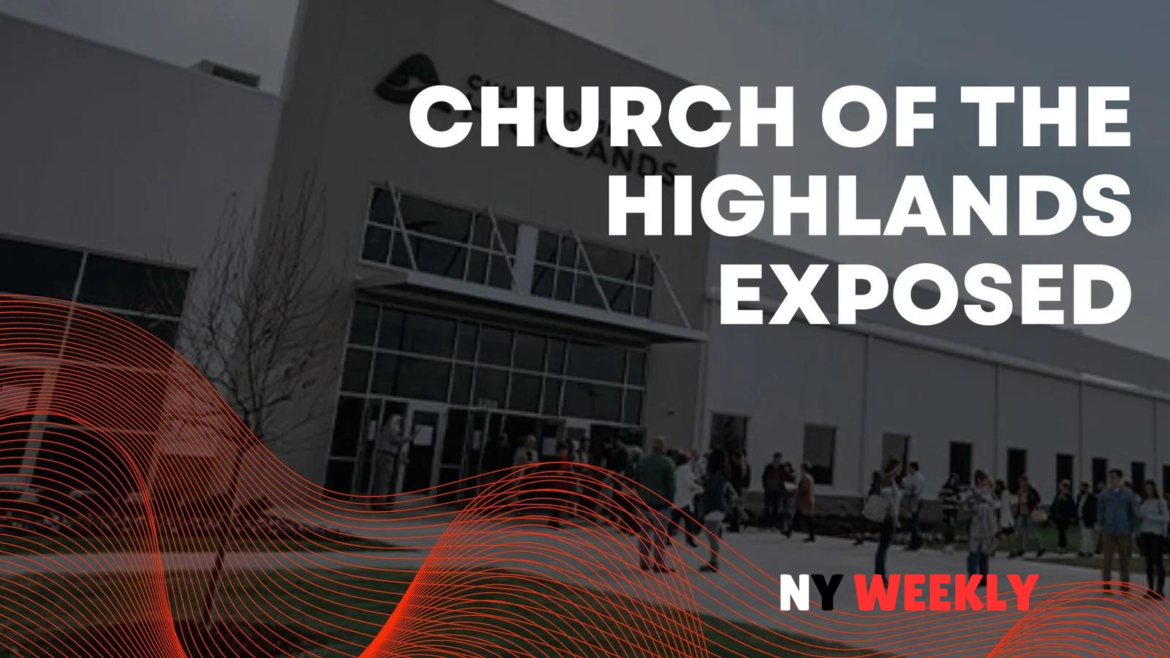
Introduction
The Church of the Highlands Exposed, a megachurch based in Alabama, has grown rapidly since its founding in 2001, amassing thousands of members and expanding to multiple campuses. As one of the largest churches in the United States, it has garnered a significant following and considerable influence. However, along with its growth and success, the church has also faced its fair share of controversies and criticisms. In this article, we will explore the various issues that have emerged over the years, shedding light on the controversies that have put the Church of the Highlands under scrutiny.
The Rise of the Church of the Highlands Exposed
The Church of the Highlands Exposed was founded by Pastor Chris Hodges in 2001 in Birmingham, Alabama. Hodges, with a background in ministry and a vision to create a life-giving church, started with just a small congregation. Over the years, the church’s growth has been nothing short of remarkable, expanding to over 20 campuses across Alabama and attracting more than 50,000 attendees each week. The church’s success has been attributed to its modern worship style, community-focused programs, and charismatic leadership.
The Church’s Influence in Alabama
The Church of the Highlands Exposed has become a significant cultural and social force in Alabama, influencing local communities and politics. With its extensive network of campuses, the church has implemented numerous outreach programs, including educational initiatives, addiction recovery programs, and community service projects. The church’s emphasis on service and community involvement has earned it a reputation as a positive influence in the lives of many Alabamians. However, its growing influence has also led to concerns and criticisms regarding its power and transparency.
Controversies and Criticisms
One of the most prominent controversies surrounding the Church of the Highlands Exposed emerged in 2020, when Pastor Chris Hodges faced backlash for his social media activity. Hodges was criticized for liking tweets from a controversial conservative commentator, which many viewed as racially insensitive. The incident sparked outrage, particularly among the African American community, leading to calls for accountability and greater sensitivity from the church leadership. In response, Hodges publicly apologized, acknowledging his insensitivity and committing to a process of learning and growth.
LGBTQ+ Inclusivity Concerns
 The Church of the Highlands Exposed has also faced criticism regarding its stance on LGBTQ+ issues. While the church maintains that it welcomes everyone, critics argue that it does not affirm LGBTQ+ identities or relationships. The church’s official stance is that marriage is between a man and a woman, and it does not support same-sex marriages. This position has drawn criticism from LGBTQ+ advocacy groups and individuals who feel excluded or marginalized by the church’s teachings. The church’s policies on LGBTQ+ inclusion continue to be a contentious issue, with ongoing debates about how it can balance its religious beliefs with a commitment to inclusivity.
The Church of the Highlands Exposed has also faced criticism regarding its stance on LGBTQ+ issues. While the church maintains that it welcomes everyone, critics argue that it does not affirm LGBTQ+ identities or relationships. The church’s official stance is that marriage is between a man and a woman, and it does not support same-sex marriages. This position has drawn criticism from LGBTQ+ advocacy groups and individuals who feel excluded or marginalized by the church’s teachings. The church’s policies on LGBTQ+ inclusion continue to be a contentious issue, with ongoing debates about how it can balance its religious beliefs with a commitment to inclusivity.
Financial Transparency Issues
As with many megachurches, the Church of the Highlands Exposed has faced scrutiny over its financial practices and transparency. Critics argue that the church’s financial dealings lack transparency, particularly concerning the allocation of funds and the compensation of its leadership. While the church is registered as a non-profit organization and does provide some financial information, there are calls for greater transparency and accountability to ensure that funds are being used ethically and effectively.
Allegations of Authoritarian Leadership
Another area of concern for critics is the leadership style of the Church of the Highlands Exposed, particularly the perceived authoritarian approach of Pastor Chris Hodges and other church leaders. Some former members and staff have described a culture of control within the church, where dissent is discouraged, and the leadership’s decisions are rarely questioned. This has led to accusations of spiritual abuse and manipulation, with critics claiming that the church’s leadership fosters a culture of unquestioning loyalty and obedience.
Ties to Controversial Organizations
The Church of the Highlands Exposed has also faced criticism for its ties to controversial organizations and figures within the evangelical community. The church has been associated with the Association of Related Churches (ARC), a church-planting organization co-founded by Chris Hodges. ARC has been criticized for its approach to church planting, leadership practices, and financial transparency. Additionally, some of the guest speakers and affiliated pastors invited to the Church of the Highlands have sparked controversy due to their views on social and political issues.
Impact on the Local Community
The influence of the Church of the Highlands Exposed extends beyond the religious sphere, with some observers noting its involvement in local politics. The church’s extensive reach and large membership base have positioned it as a significant player in Alabama’s social and political landscape. Some critics argue that the church’s influence in local politics raises concerns about the separation of church and state, particularly when it comes to its involvement in public policy issues. The church’s engagement in political matters has sparked debates about the appropriateness of religious institutions wielding such influence in secular governance.
Community Outreach and Charity Work
Despite the controversies, it is essential to acknowledge the positive impact that the Church of the Highlands Exposed has had on local communities through its outreach and charity work. The church has been involved in numerous initiatives aimed at improving the lives of people in need, from food drives and educational programs to addiction recovery services and disaster relief efforts. These efforts have been praised for their positive contributions to the community, demonstrating the church’s commitment to serving others. However, critics argue that these positive actions do not absolve the church of its other controversies and that both aspects should be considered when evaluating its overall impact.
The Church’s Response to Criticism
In response to the various controversies, the Church of the Highlands Exposed and Pastor Chris Hodges have made efforts to address criticisms and apologize where necessary. Hodges has publicly acknowledged mistakes, particularly in relation to the racial insensitivity allegations, and has committed to improving his understanding of racial issues. The church has also taken steps to engage in dialogues about diversity and inclusion, aiming to foster a more inclusive environment. However, some critics feel that these efforts have been insufficient and that more substantive changes are needed to address the underlying issues.
Efforts Toward Greater Transparency
To address concerns about financial transparency, the Church of the Highlands Exposed has made some efforts to provide more information about its financial practices. The church has published annual reports outlining its expenditures and charitable activities, and it has emphasized its commitment to ethical financial management. However, calls for more detailed financial disclosures and independent audits continue, as some believe that the church has not gone far enough in demonstrating full transparency.
Conclusion
Church of the Highlands Exposed remains a significant and influential institution within the religious landscape of Alabama and beyond. While it has made substantial positive contributions to local communities through its outreach programs and charity work, it has also faced significant controversies and criticisms. Issues related to racial insensitivity, LGBTQ+ inclusivity, financial transparency, leadership practices, and political involvement have sparked debates about the church’s role and responsibilities. As the Church of the Highlands continues to navigate these challenges, it faces the ongoing task of balancing its religious mission with a commitment to accountability, inclusivity, and ethical leadership.
You May Also Read: NY Weekly


